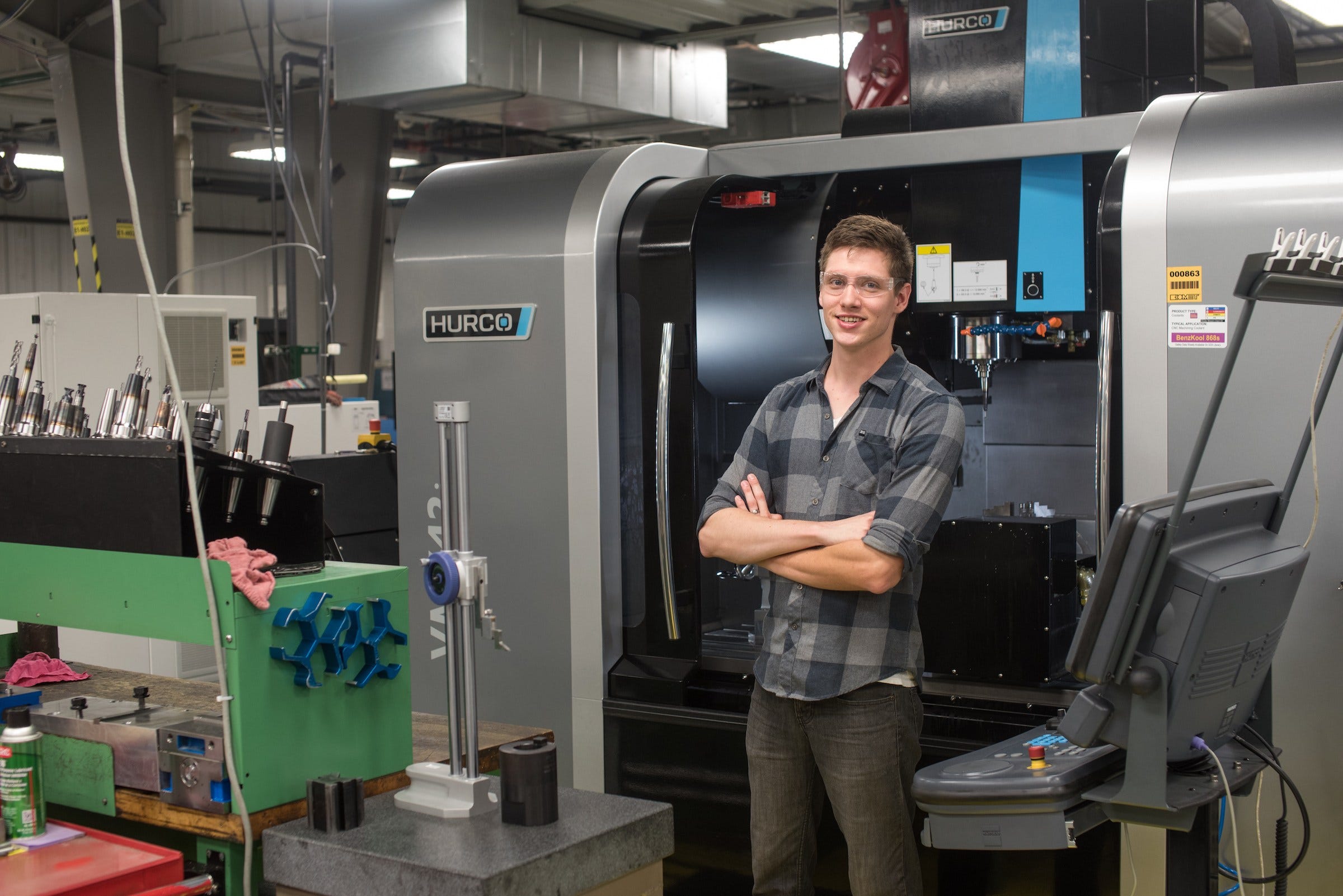Program Wants Students to ‘Think Ortho’ Even Younger
 Zimmer Biomet employees have also hosted students and parents for the Think Ortho Tour.
Zimmer Biomet employees have also hosted students and parents for the Think Ortho Tour.
Subscriber Benefit
As a subscriber you can listen to articles at work, in the car, or while you work out. Subscribe NowThe skills gap, or lack of middle-skill workers, is a top concern for manufacturers throughout the state, but perhaps felt most acutely in Indiana’s manufacturing pockets. Warsaw, for example, is very manufacturing-intense as “Orthopedic Capital of the World,” and Kosciusko County’s low 2.3 percent unemployment rate is squeezing the already-tight labor market. To help solve the problem, local leaders are retooling the Think Ortho campaign to attract more potential workers at an even younger age—as soon as the eighth grade.
“[Finding employees and retaining them] has definitely been a challenge here in Warsaw,” says Precision Medical Technologies Human Resource and Customer Service Manager Mike Conrad. “It’s very competitive. We’ve increased our benefits package to try to entice employees to start working for us or to continue working for us. It’s been very difficult to find machinists and retain them, due to so many competitors with similar jobs out there.”
The state’s orthopedic initiative, OrthoWorx, launched Think Ortho several years ago to raise awareness among students, parents and educators about orthopedic manufacturing careers. OrthoWorx Executive Director Brad Bishop says there are hundreds of advanced manufacturing jobs “in our area that aren’t being filled right now.”
Originally targeting college students to connect them with internship and co-op opportunities, Think Ortho soon extended the effort to high school students, but is now hoping to reach potential workers as early as eighth grade.
“This is the first time we’ve targeted eighth graders specifically. We think we need to reach students earlier than high school; eighth grade is a good target because kids probably haven’t decided what they want to do, but they’re on the verge of planning out their high school curriculum,” says Bishop. “We want to make them aware of the career opportunities, that orthopedic manufacturing serves people, pays well and is a high-tech, clean environment—not the manufacturing jobs of the past.”
OrthoWorx is hopeful the effort will help put more students on a technical education path to help fill the vast number of openings for positions, such as machinists and quality technicians. Equally important, says Bishop, is getting parents on board.
“Sometimes parents can be an obstacle for kids going into manufacturing careers, because their frame of reference is probably grandpa’s manufacturing factory,” says Bishop. “Orthopedic manufacturing is nothing like that.”
As part of the Think Ortho effort, OrthoWorx added the Think Ortho Tour, and the most recent edition included parents for the first time. About 175 students and parents toured local contract manufacturer Precision Medical Technologies, the Ivy Tech Orthopedic and Advanced Manufacturing Training Center and the Warsaw Area Career Center.
OrthoWorx has even bigger plans for the future of the Think Ortho Tour; leaders aim to orchestrate an event in October that will involve every eighth grader in Kosciusko County touring an orthopedic manufacturing facility as part of the national Manufacturing Day. OrthoWorx is also planning an additional program focused on parents.
“We’re always looking to get young students in here and show them what manufacturing is about today in 2018,” says Conrad. “The main purpose is to open their eyes to what we do, what kind of jobs are out there, what kind of salaries can be expected entering the workforce and try to get more people excited about manufacturing here in northern Indiana.”
Bishop says the Think Ortho Tour also targets educators, including teachers and guidance counselors.
Bishop says, with a base of technical education, employees can grow with a company and pursue higher levels of training.
Conrad says Precision Medical Technologies works closely with Ivy Tech, but students are often enticed to begin working even sooner than they can finish the training.
